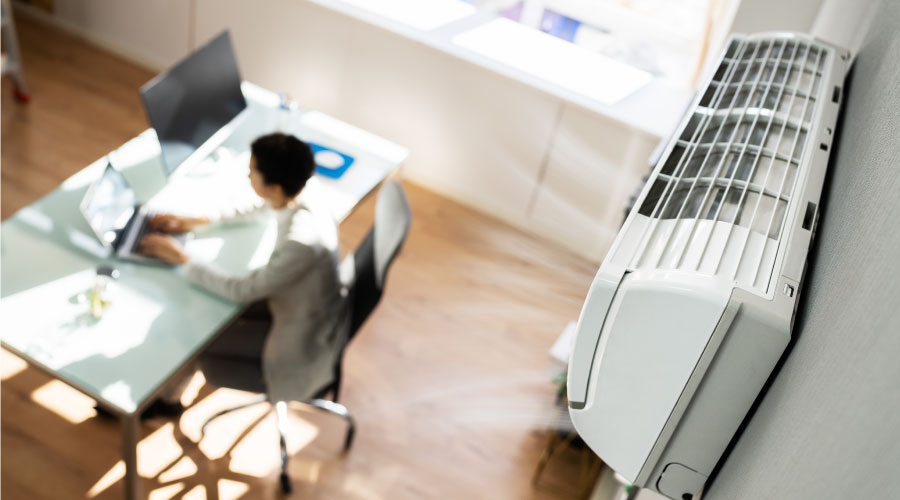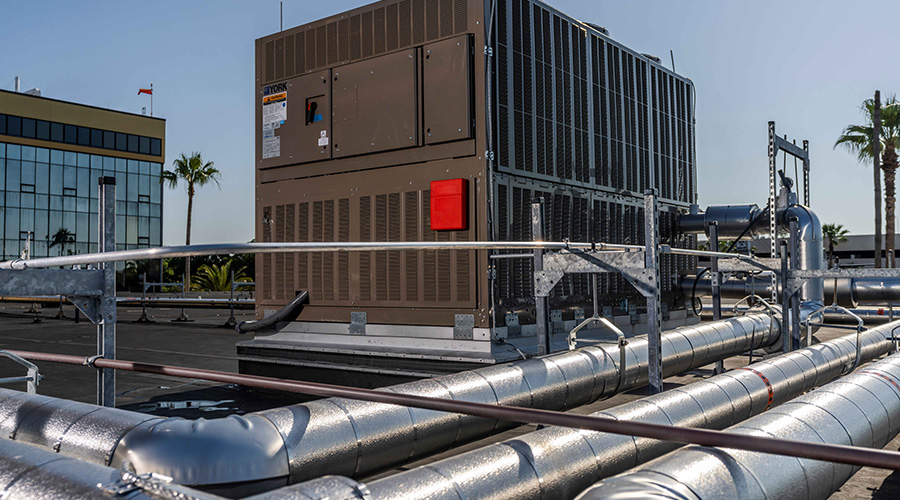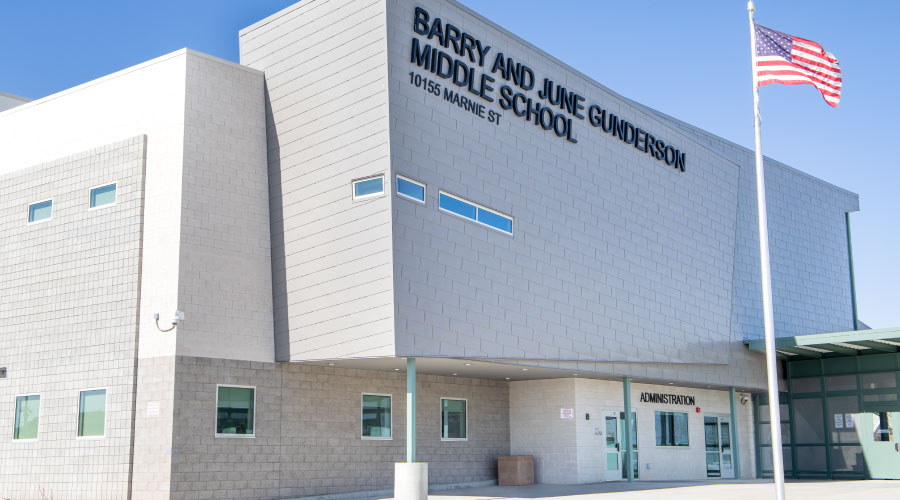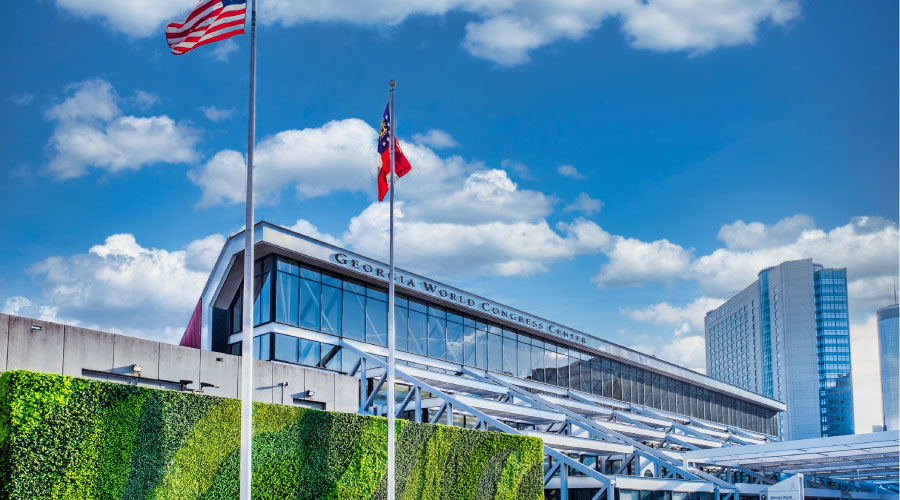Other Considerations when Planning for Use of Temporary Portable Cooling
Managers who are planning for possible use of temporary, portable cooling also need to consider a series of other items when purchasing a unit. These issues include condensate drainage, heat rejection, pressure losses, air distribution, and noise.
With the exception of evaporative coolers, as a system cools air, moisture condenses out of the air as it passes through the cooling coils and must be drained away. Typically, this process is a simple matter of draining the system to a nearby floor drain or plumbing stack, but it is important to consider because the amount of condensate can accumulate quickly.
As described above, heat rejection is an important issue to consider in a DX system because this type of unit generates heat by compressing the refrigerant that later is used to cool a space. The system must exhaust the excess heat from the area being cooled, typically to the outside or to a part of the building that is intentionally unconditioned.
Pressure losses and air distribution are important considerations when looking at ducted, portable cooling systems, such as ground-mounted units. Most units have a limited ability to generate static pressure inside of a building. Also, because these units typically use flexible ductwork to transport the air to the space being cooled, there is significant pressure and airflow losses as the length of ducting increases, which limits the overall distance the air can be moved.
Noise generated by portable cooling units also can be a significant problem because it can affect tenants. Most portable cooling units are reasonably loud, with a range of 50-70 decibels. For the sake of comparison, conversation is typically 60 decibels, and busy street traffic can be up to 70 decibels.
Some tenants are willing to put up with this amount of noise temporarily, but others might not be able to conduct their normal business under those conditions, leading to further complaints. Outside units can be even louder, so managers might need to check local noise ordinances before selecting a unit.
When considering whether to buy or rent a portable cooling unit, the most important issues for managers to consider are the amount of cooling needed, the cost to reach that amount of cooling, requirements for the infrastructure — plumbing, electrical capacity, etc., and whether the tenants will accept the temporary cooling until the primary cooling system is repaired or modified.
Philip Winterland is a project manager with Facility Engineering Associates.
Related Topics:














